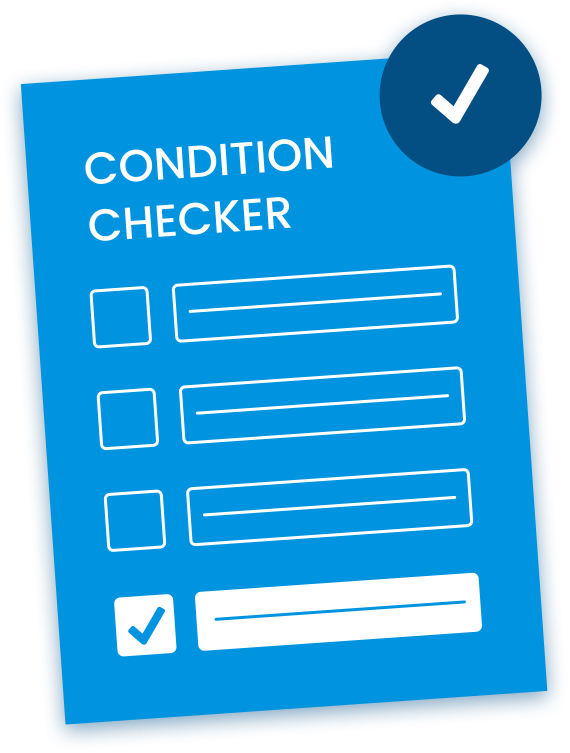Pinched Nerve
Find out which possible conditions you may be suffering from by trying our 2-min Guided Pain Assessment Form!





A pinched nerve can put a serious damper on your life. Pinched, or impinged, nerves are caused when surrounding bones, vertebral discs or other tissues put pressure on a nerve, due to an existing spinal condition.
Contact NJ Spine and Ortho for a pinched nerve treatment today.
The result is nerve root inflammation, a condition known as radiculitis, that can cause tingling or “pins and needles” sensations, sharp pains, numbness, muscle weakness and other problems up to and including incontinence, depending on the location of the pinched nerve.
Major nerve roots route sensory and motor impulses directly to and from the spinal cord to an enormous number of nerves throughout the body, which means a pinched nerve root from an existing condition may cause radiculitis symptoms at any number of points in your spine.
A common condition that causes a pinched nerve is sciatica, which occurs when the sciatic nerve (the nerve that begins in the lower, or lumbar, part of the spine and runs down the back of the legs) is pinched and causes pain running down one leg, tingling or loss of sensation in the leg or foot, and weakness that can lead to balance problems and muscle atrophy.
Spinal stenosis, a condition that describes the narrowing of the spinal canal, can result in pinched nerve symptoms as well. Cervical (neck portion of your spine) spinal stenosis will cause similar problems as sciatica, but in the arms and hands. Severely pinched nerves in certain parts of the spine can even cause loss of bowel and bladder control.
Do these symptoms sound familiar? Do you worry you may have a pinched nerve? Try our Condition Checker below to find the answer to your pain and help us diagnose your condition.
The most common causes of a pinched nerve will often vary by age, however, pinched nerves will most frequently occur in younger patients as a result of soft tissue or disc problems. Older patients on the other hand experience pinched nerves most often as a result of arthritis or other age-related issues.
Weakness, tingling and numbness, and pain are all warning signs that you may be suffering from a pinched nerve. Constant pain is very unpleasant and can stop you from going to work or engaging in your day-to-day activities. The symptoms tend to worsen without treatment, so make sure to contact the experts at NJSO to help you take charge of your health with a custom-tailored treatment plan.
Depending on the severity of your pinched nerve, symptoms may resolve themselves temporarily, but unless you correct the underlying cause, your nerve impingement will result in future pain and numbness that will progressively get worse. Contact our team of expert orthopedic spine surgeons at NJ Spine & Orthopedic to find out the best treatment options for your pinched nerve.
The most important thing you should understand about a pinched nerve is that its symptoms tend to worsen without treatment. Seeking prompt medical attention is crucial to long-term relief from the pain caused by a pinched nerve. If you are experiencing symptoms of a pinched nerve, you can get started with our Free Online Pain Assessment today or call us at (855) 586-2615.
Although not all of the circumstances that could increase an individual’s likelihood of suffering from a pinched nerve can be corrected by preventative measures, understanding the risk factors can help you take the steps necessary to keep your back healthy. These risk factors include arthritis in the spine, weight gain, continued poor body position and posture, disc herniation and bulging disks, pregnancy, tumors, traumatic injuries, scar tissue, and genetic predisposition.

Find your condition with our 2-minute Condition Checker.
Below are some warning signs that you may have a pinched nerve:
The most important thing you should understand about a pinched nerve is that its symptoms tend to worsen without treatment. Seeking prompt medical attention from experts at NJSO is the best way to get long-term relief from the symptoms of a pinched nerve.

Discover which treatment options are right for you with our Treatment Finder.
Symptoms of a pinched nerve may resolve themselves temporarily, but unless you correct the underlying cause, your nerve impingement will result in future bouts of pain and numbness that grow progressively worse. If you have already exhausted your non-surgical options for at least six weeks, then it is most likely time to focus on surgical treatment options.
A surgery often performed to relieve pinched nerves is a laminoforaminotomy to treat sciatica, a common underlying condition in which a herniated disc is typically the cause of pressure on the nerve. Surgeons partially or completely remove the affected disc using the latest minimally invasive techniques to achieve an outpatient treatment experience.
In the case of a more severe condition caused by a pinched nerve in which the whole disc needs to be removed and replaced, an artificial disc replacement may be performed. This is a minimally invasive, two-hour outpatient procedure that is done by lead surgeon Dr. Scott Katzman, who has successfully performed over 250 artificial disc replacements.
Our team of expert orthopedic spine surgeons at NJ Spine & Orthopedic offer a variety of minimally invasive treatment options. To find out which treatments you qualify for, try our Candidacy Verification tool below.

Determine your eligibility with our Candidacy Verification.
"*" indicates required fields